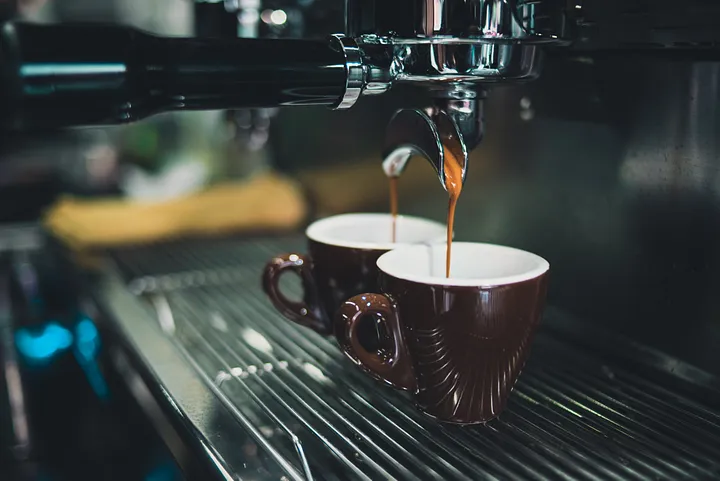The world is divided into many groups, ethnicities, and races, but there are two distinct groups:
Group-1 Tea Drinkers
Group-2 Coffee Drinkers
Let’s start with the fact that, after water, tea is 2nd most popular beverage worldwide.
I grew up in a small remote village where tea/chai consumption in the morning is the way to start your morning. I recall that my grandmother made tea first thing in the morning, which we would drink after breakfast before leaving for school.
Although I wasn’t the best, I did well in my studies. My parents, therefore, made the decision to send me to school in the same village for grade 5 and in a different village for grades 6 through 10, where I used to walk and occasionally sit on cattle carts as farmers went to get fresh food to feed their cows and buffaloes.
My mother, I remember, gave us a tall glass of milk right before bed, and I was a bit picky; I never enjoyed drinking boiled milk. I always demanded that some sugar and tea be added. My mother never went to school, but she has that generational wisdom that milk has many essential nutrients, including calcium, protein, vitamin A, and zinc- all of which are paramount for growth.
I also remember that before I went to bed, my mother always gave us a tall glass of milk. I was a bit picky and never liked drinking boiled milk. I always insisted on having tea and sugar added. Although my mother never attended school, she carries on the family tradition in her DNA that milk contains many vital nutrients that are critical for growth, such as calcium, zinc, vitamin A, and protein. Mother always said that drinking milk helps to sharpen your brain and improve your memory.
Before I get into why I stopped drinking tea or only drank it occasionally, I’d like to share some of the critical benefits of tea/chai.
Benefits of tea/chai
Chai/tea has many advantages, most of which I only discovered while researching for this article.
- Helps to boost heart health
- Rich in antioxidant
- Increase alertness
- Good for skin
- Helps to reduce inflammation, which is the leading cause of illness
- Helps to boost your immune system
- Helps to reduce muscle pain
What is in tea or chai?
According to this research paper, Molecular evidence of health benefits of drinking black tea, black tea has a range of bioactive components.

My transition from tea/chai to coffee
I came to Canada in 2012 to pursue an M.Eng in Petroleum Engineering on a full scholarship; I was fortunate to receive a scholarship that helped me in almost every aspect of my life. After completing grad school, I didn’t pursue a career in oil and gas; that’s a long story for another time.
I visited a nearby restaurant on my first morning in a new town. I believe it was Tim Hortons, and I ordered a sandwich, muffin, and medium tea. The real struggle began; I could not drink the tea more than once. It was simply water with a teaspoon of milk and sugar.
Some individuals, particularly those from the subcontinent who looked like me, were ordering small or medium French vanilla, which appeared to be coffee.
Hesitantly, I ordered a small French vanilla. And, boy, did I enjoy it; I grew up drinking sugary chai. It was fantastic. I was hooked on ordering French vanilla for the next few months to a year.

Then, months later, my classmate bought us a sandwich and coffee for lunch. When he asked what I wanted, I replied, “A medium French vanilla,” as I usually do. He bought a medium double-double at Tim Hortons by accident.
What is a double-double at Tim Hortons?

The coffee aroma was so strong that it hit every neuron, forcing as many connections as possible to be formed to understand what this new beverage was.
It has remained one of my favorite beverages in Canada since that day.
My friends and family know that I enjoy medium doubles at Tim Hortons and small doubles at McDonald’s.
Do I drink a medium double-double daily? I believe in living a healthy lifestyle and consuming 26g of sugar every day is not one of them.
According to the American Herat Association, here is the recommended sugar intake for adults.
MEN: no more than nine teaspoons (36 grams or 150 calories) of added sugar per day
WOMEN: no more than six teaspoons (25 grams or 100 calories) per day
Recall: One can of soda, 12-ounce, contains eight teaspoons of sugar (32 grams)
Do I consume sugary coffee every day?
Short answer: NO
Long answer: YES, but not sugary
Last year, I tried to go 30 days without drinking coffee. Here’s my shameless plug: I’ve completed 29 30-day challenges to improve my health and productivity so far.
I drink 1–2 cups of coffee per day and try not to exceed 3cups per day.
Reminders
I also do not consume caffeine products 6 hours before bedtime to get a good night’s sleep.
I only drink black coffee with no sugar or milk.
I make a large cup of black coffee first thing in the morning after drinking a tall glass of water and occasionally squeezing some fresh lemon.
If anyone is curious, I only consume dark roast coffee — Organic. It’s less acidic than the light roast. I also like the strong aroma.

Which roast (dark or light) has more caffeine?

Why do I drink coffee or prefer it to tea/chai?
New research on coffee consumption effects
Drinking coffee — mainly two to three cups a day — is not only associated with a lower risk of heart disease and dangerous heart rhythms but also with living longer. American College of Cardiology.
Study sample and results (most extensive study)
The research included 468,629 participants in the age range of 48 to 64 (male 42%/196,824). The participants were divided into three main groups.
i) 22% did not drink coffee daily
ii) 58% had 1/2 to 3 cups a day (I consume 2–3 cups a day, black coffee- no cream or sugar)
iii) 20% had more than 3 cups per day
Researchers observed the participants for 15 years. The study was comprehensive in that they adapted many factors: gender, height, weight, age, alcohol intake, smoking habits, cholesterol levels, and physical activity.
The research also incorporated what type of diet participants consumed: vegetables, fruits, tea, and/or meat.
Here are the astonishing results.
Researchers found that the second group (half to 3 cups) lowered the risk of all-cause mortality by 12% compared to the first group (no coffee or occasional)
Light-moderate and high coffee consumption were related to favorable cardiovascular benefits, both in cardiac and arterial health, compared to no coffee use.
How much caffeine is enough per day?
Let me recall the most recent study, in which researchers tested caffeine intake in three groups.
Coffee Drinker Groups
Group A: No coffee on a daily basis
Group B: half cup to three cups every day
Group C: 3+ cups a day
On that basis, I consume 2–3 cups per day. It’s worth noting that nearly 60% of participants consume 1/2 to 3 cups per day. That means I belong to group B.
While researching this article, I came across an intriguing Quora answer about tea vs. coffee drinkers. It’s important to mention.
- Tea drinkers meditate; coffee drinkers medicate.
- Tea drinkers are as loose as their leaves; coffee drinkers are as grounded as their beans.
- Tea drinkers take a break; coffee drinkers need a break.
- Tea drinkers are high-noon; coffee drinkers are morning, noon and night.
- Tea drinkers take it slow; coffee drinkers are looking for a rush.
- Tea drinkers are looking to kick back; coffee drinkers are looking for a kick.
- Tea drinkers know no time constraints; coffee drinkers know to cut it off by 3 pm.
- Tea drinkers are about rainy days; coffee drinkers are early mornings.
- Tea drinkers see the mug half-full; coffee drinkers see it to the bottom.
- Tea drinkers work outside the lines; coffee drinkers work to meet deadlines.
- Tea drinkers don’t need caffeine; coffee drinkers would inject it, if possible.
- Tea drinkers like to stew; coffee drinkers like to brew.
- Tea drinkers bag it up; coffee drinkers like their sugar in the raw.
- Tea drinkers like a little flavor; coffee drinkers like it extra bold.
- Tea drinkers like it piping hot; coffee drinkers like it with the pipe.
- Tea drinkers are fixing up; coffee drinkers need their fix.
- Tea drinkers lie down to bed; coffee drinkers need it to get out.
- Tea drinkers keep thoughts; coffee drinkers keep notebooks.
- Tea drinkers eat biscuits; coffee drinkers don’t eat anything.
- Tea drinkers ask questions; coffee drinkers answer them.
- Tea drinkers are soothing; coffee drinkers are brooding.
- Tea drinkers can let it wait; coffee drinkers sip their weight in coffee.
- Tea drinkers do it for the enjoyment; coffee drinkers do it with a purpose.
- Tea drinkers ponder; coffee drinkers argue.
- Tea drinkers read; coffee drinkers write.
- Tea drinkers cross wires; coffee drinkers get wired.
- Tea drinkers need to relax; coffee drinkers don’t need the laxative.
- Tea drinkers feel close to home; coffee drinkers are imported.
- Tea drinkers put their hands around you; coffee drinkers’ are shaky.
- Tea drinkers come from a box; coffee drinkers have an origin.
The bottom line
To summarize, coffee is the third most consumed beverage in the world and contains 1000+ compounds such as melanoidin, diterpenes, polyphenols, and caffeine, all of which are necessary for good health.
Let’s recall the benefits of coffee.
- Coffee or tea contains caffeine, a stimulant that helps to increase energy levels and decrease tiredness.
- Research shows that caffeine intake helps to protect against mental health diseases: Alzeheimer, Parkinson’s
- Studies also show that caffeine may help to reduce depression.
- Many studies also show that coffee supports liver health, especially to protect from chronic liver disease.
Book recommendation: The World Atlas of Coffee: From Beans to Brewing — Coffees Explored, Explained, and Enjoyed
Thank you for reading, and let me know in the comments. Are you a tea/chai or coffee person?




